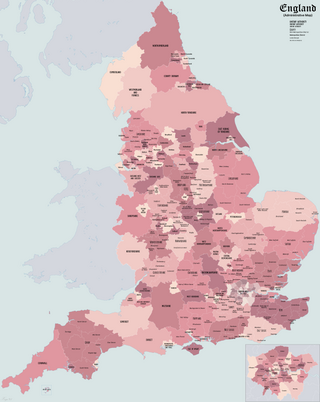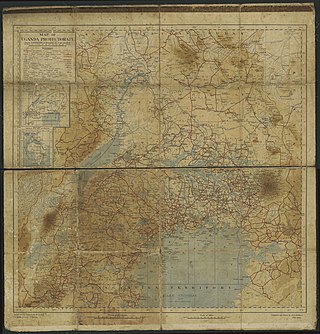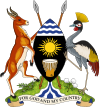
Gwynedd is a county in the north-west of Wales. It borders Anglesey across the Menai Strait to the north, Conwy, Denbighshire, and Powys to the east, Ceredigion over the Dyfi estuary to the south, and the Irish Sea to the west. The city of Bangor is the largest settlement, and the administrative centre is Caernarfon. The preserved county of Gwynedd, which is used for ceremonial purposes, includes the Isle of Anglesey.

Local government is a generic term for the lowest tiers of public administration within a particular sovereign state. This particular usage of the word government refers specifically to a level of administration that is both geographically localised and has limited powers. While in some countries, "government" is normally reserved purely for a national administration (government), the term local government is always used specifically in contrast to national government – as well as, in many cases, the activities of sub-national, first-level administrative divisions. Local governments generally act only within powers specifically delegated to them by law and/or directives of a higher level of government.In federal states, local government generally comprises a third or fourth tier of government, whereas in unitary states, local government usually occupies the second or third tier of government.

The subdivisions of England constitute a hierarchy of administrative divisions and non-administrative ceremonial areas.

Tandridge is a local government district in east Surrey, England. Its council is based in Oxted, although the largest settlement is Caterham; other notable settlements include Warlingham, Godstone and Lingfield. In mid-2019, the district had an estimated population of 88,129.

The Government of Jersey is the executive body of the States of Jersey and is the central government of the Bailiwick of Jersey. The government is led by the Chief Minister, who nominates all the remaining ministers, all elected by the States Assembly.

As of 1 July 2020, Uganda is divided into 135 districts plus the capital city of Kampala, which are grouped into four administrative regions.

A Local Council (LC) is a form of local elected government within the districts of Uganda.

Wadelai was a boma at a narrow point on the Albert Nile in what is now northern Uganda. There were several shortlived colonial stations there, the first being the final chief station of Emin Pasha when Governor of Equatoria. Wadelai gives its name to a current Ugandan sub-county.
A municipal council is the legislative body of a municipality or local government area. Depending on the location and classification of the municipality it may be known as a city council, town council, town board, community council, rural council, village council, or board of aldermen.

The Borough of Hartlepool is a unitary authority area in ceremonial County Durham, England. The borough's largest town is Hartlepool.

Peterborough City Council is the local authority for Peterborough in the East of England. It is a unitary authority, having the powers of a non-metropolitan county and district council combined. The City was incorporated as a municipal borough in 1874; from 1888, it fell within the jurisdiction of the Soke of Peterborough county council and from 1965, Huntingdon and Peterborough county council. In 1974, it was replaced by a wholly new non-metropolitan district, broadly corresponding to the Soke, in the new enlarged Cambridgeshire. In 1998, Peterborough became independent of Cambridgeshire as a unitary authority, but the city continues to form part of that county for ceremonial purposes as defined by the Lieutenancies Act 1997.
The wards and electoral divisions in the United Kingdom are electoral districts at sub-national level, represented by one or more councillors. The ward is the primary unit of English electoral geography for civil parishes and borough and district councils, the electoral ward is the unit used by Welsh principal councils, while the electoral division is the unit used by English county councils and some unitary authorities. Each ward/division has an average electorate of about 5,500 people, but ward population counts can vary substantially. As of 2021 there are 8,694 electoral wards/divisions in the UK. An average area of wards in the United Kingdom is 27 km2.

East Sussex County Council is the upper tier local authority for the non-metropolitan county of East Sussex in England.

The counties of Uganda are divided into sub-counties, which are further divided into parishes and villages. The head elected official in a district is the Chairperson of the Local Council V.

The following outline is provided as an overview of and topical guide to Uganda:

The Uganda Local Governments’ Association (ULGA) is the National Association of Local Governments of Uganda. It is a private, voluntary and non-profit body.
John Bosco Ikojo is a Ugandan accountant, Finance expert and politician. He is the elected Member of Parliament for Bukedea County, Bukedea District, and a representative for NRM, the ruling political party in Uganda. He is a member the NRM Parliamentary Caucus and serves as a member on the Committee on National Economy and the Committee on Natural Resources in the 10th Parliament of Uganda.
The Parish Development Model (PDM) is a government-led initiative in Uganda aimed at transforming subsistence households into the money economy and lifting 17.5 million Ugandans in 3.5 million households out of poverty. The PDM initiative was launched on 26 February 2022 in the eastern district of Kibuku.by the President of Uganda Yoweri Museveni. It was a strategy to improve service delivery and alleviate poverty at the grassroots level.















